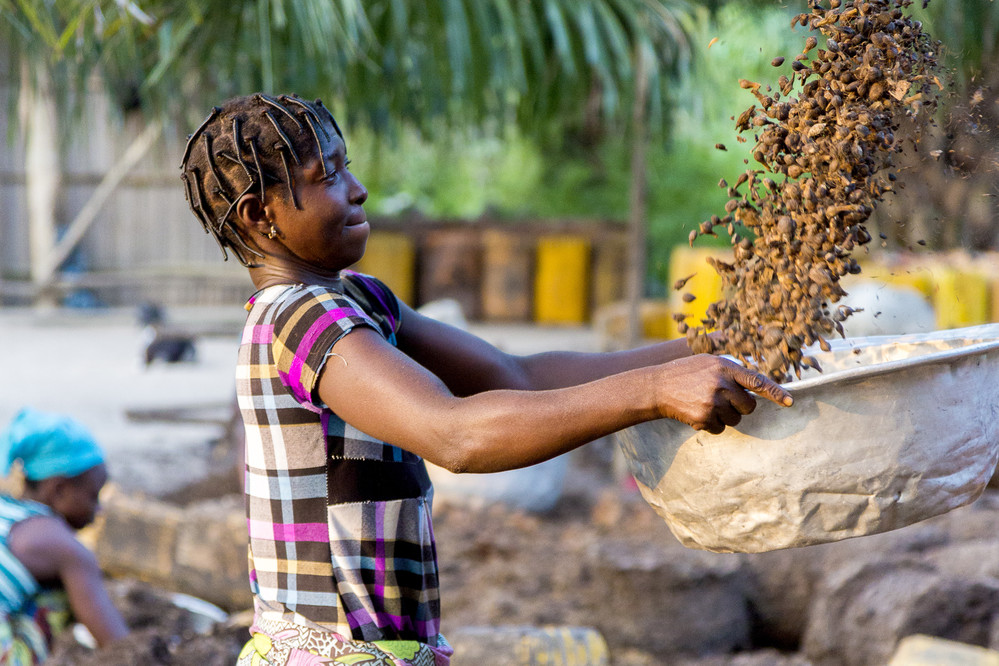The BeniBiz 2.0 program, funded by The Embassy of the Kingdom of the Netherlands, The Swiss Agency for Development and Cooperation, and the Delegation of the European Union, will also support regenerative business and food security.
Cotonou, Benin – International nonprofit TechnoServe recently launched the second edition of the BeniBiz project during a ceremony involving stakeholders from across the Beninese entrepreneurial ecosystem.
BeniBiz 2.0 is a five-year program funded by The Embassy of the Kingdom of the Netherlands (EKN), The Swiss Agency for Development and Cooperation (SDC), and the Delegation of European Union (DUE). BeniBiz 2.0 will scale the approach followed by BeniBiz 1.0, supporting more entrepreneurs, especially young people and women, to increase economic opportunities, employment, and food security while contributing to the green growth of the economy.
Micro-entrepreneurs represent 97% of the 44 million micro, small and medium enterprises (MSMEs) in Sub-Saharan Africa, and only 33% of young people between the ages of 15 and 35 succeed in finding paid employment in Benin. Therefore, MSMEs represent an essential source of job creation and improved economic opportunities. With the support of BeniBiz 2.0, youth and women entrepreneurs – especially in the food and agricultural sector – will have the chance to create better economic opportunities while improving nutrition.
During the launch ceremony, Maimouna Mbacke, the country director of TechnoServe in Benin, presented the results: “The project’s first phase supported nearly 5,700 entrepreneurs, 56% of whom were women. These entrepreneurs were able to achieve an average growth in annual turnover of 130%. More than 60% of these companies supported are now formalized, and more than 12,000 jobs have been created.”
BeniBiz 2.0 will have a particular emphasis on supporting young entrepreneurs, as well as women, who are the majority owners of just 19% of Benin’s formal enterprises. To address the impacts of the global food crisis and harness opportunities in agricultural value chains, more than half of the entrepreneurs participating in the program will come from the agri-food sector, such as local food processing businesses.
The program will have a dedicated track to accelerate the growth of green businesses that provide regenerative products and services to their communities. It will also help businesses identify and adopt practices that improve their climate resilience and environmental sustainability.
Through a Market System Development (MSD/M4P) approach, BeniBiz 2.0 will work with local stakeholders to facilitate new and sustainable solutions that will channel access to different tools, products, and services that will help entrepreneurs on their path to success and ensure that benefits last long after the program is completed. It focuses on four main components:
-
Access to skills: directly training entrepreneurs and supporting local enterprise support organizations (ESO) to provide better access to impactful business and management practices, as well as facilitating better access to agri-business technical training
-
Access to finance: helping bridge the gap between entrepreneurs and financial institutions so that they better understand each other and come up with win-win products and services
-
Access to markets: supporting entrepreneurs to secure large contracts improve marketing capabilities, and linking them with potential customers
-
Access to information: connecting entrepreneurs with key information for their growth
BeniBiz 2.0 aims to benefit at least 117,500 entrepreneurs: 10,725 through direct support and 106,900 through the ecosystem approach.
“[W]omen with a creative force, women with a real desire to move forward: those are the entrepreneurs of BeniBiz,” said Her Excellency To Tjoelker-Kleve, the Ambassador of the Netherlands in Benin, during the ceremony.
Elisabeth Pitteloud, the head of International Cooperation Switzerland in Benin, added, “The hope of succeeding through entrepreneurship–that’s what we want to give to Beninese youth through the BeniBiz project.”
This article was originally published by Technoserve.

